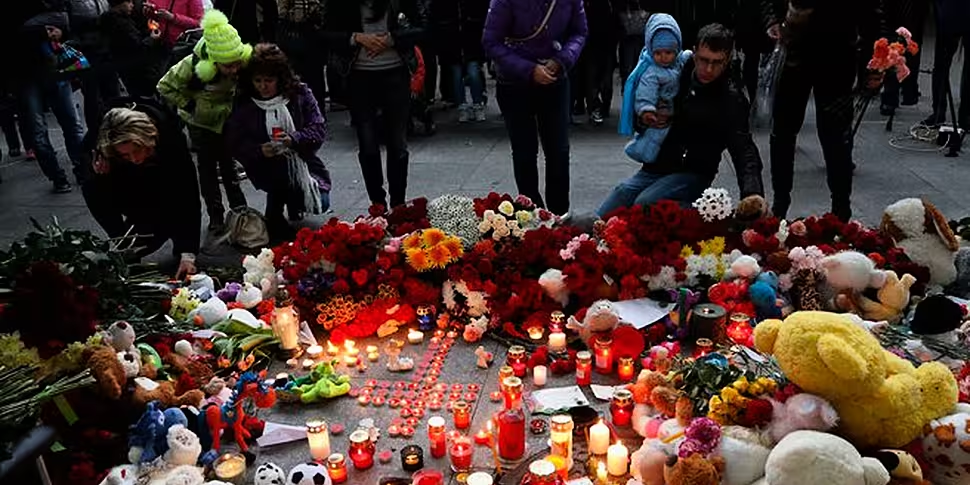Updated 12.20
A Russian airline says it is "impossible" that a technical fault or pilot error caused its jet to break up, killing 224 people.
Managers from Kogalymavia, which operated the Metrojet flight, said only "some kind of impact" could have caused the plane to start falling apart in mid-air as it flew over Egypt.
However, Egyptian authorities examining the plane's black boxes claim the airliner was not struck from outside. That denial came after an Islamic State affiliate claimed responsibility for the downing of the aircraft.
Metrojet's deputy director-general Alexander Smirnov said: "There are no circumstances where a plane can just fall apart in mid-air. There is no technical fault or stopping of internal systems that could lead to the aircraft's dismembering".
"If we don't take in fantastical versions that the plane can be destroyed by a change in pressure, the only plausible reason is mechanical action aimed at the plane".
The plane was registered in Ireland and safety documentation indicates it passed a check by the Irish aviation regulator earlier this year.
Irish aviation investigators will travel to Cairo today to assist in the examination of the plane.
The aircraft's crew did not make any contact about problems with the plane during the 23 minutes before it disappeared off flight radar, the airline said.
Speaking in Moscow, bosses dismissed claims that financial problems could have compromised safety and said both the Airbus A321's engines had been inspected on October 26th, with no problems found.
The airline said flight crew had not recorded any technical concerns in their log book during the jet's last five flights - though the wife of co-pilot Sergei Truckahev reportedly claimed at the weekend that he had complained "the technical condition of the aircraft left much to be desired".
Footage of the crash site shows large pieces of debris:
The Kremlin, which previously played down a claim of responsibility from Islamic State-linked terrorists, said on Monday that "nothing can be ruled out" as investigators work with debris spread over some eight square miles on the Sinai Peninsula.
A source in the committee analysing the plane's two black box flight recorders in Egypt told Reuters preliminary analysis showed the aircraft was not struck from outside and that the pilot did not make a distress call.
More than 170 bodies have been recovered from the crash site, with the remains of more than 140 victims flown to St Petersburg and transported in two lorries from Pulkovo Airport on Monday morning.
Authorities say all those on board were Russian nationals - most of them holidaying in Sharm el-Sheikh - except for three Ukrainians and one Belarusian. 25 were children.
The aircraft vanished from radar shortly after taking off from the Red Sea resort and was flying at around 31,000ft when it lost contact.
Emirates, Lufthansa, Qatar Airways and Air France said they have stopped flying over the Sinai Peninsula until they find out more about what caused the crash.
Britain's EasyJet said it would continue to fly tourists to Sharm el-Sheikh "as planned", while British Airways said it could not comment on "exact flight routes".
Egyptian President Abdul Fattah al-Sisi has warned the investigation could take months.
Outside St Petersburg airport locals are paying their respects at a shrine to the people who lost their lives:
Jason Corcoran, a reporter for BNE IntelliNews, is in Moscow. He told Newstalk Breakfast there is still confusion over what happened:









